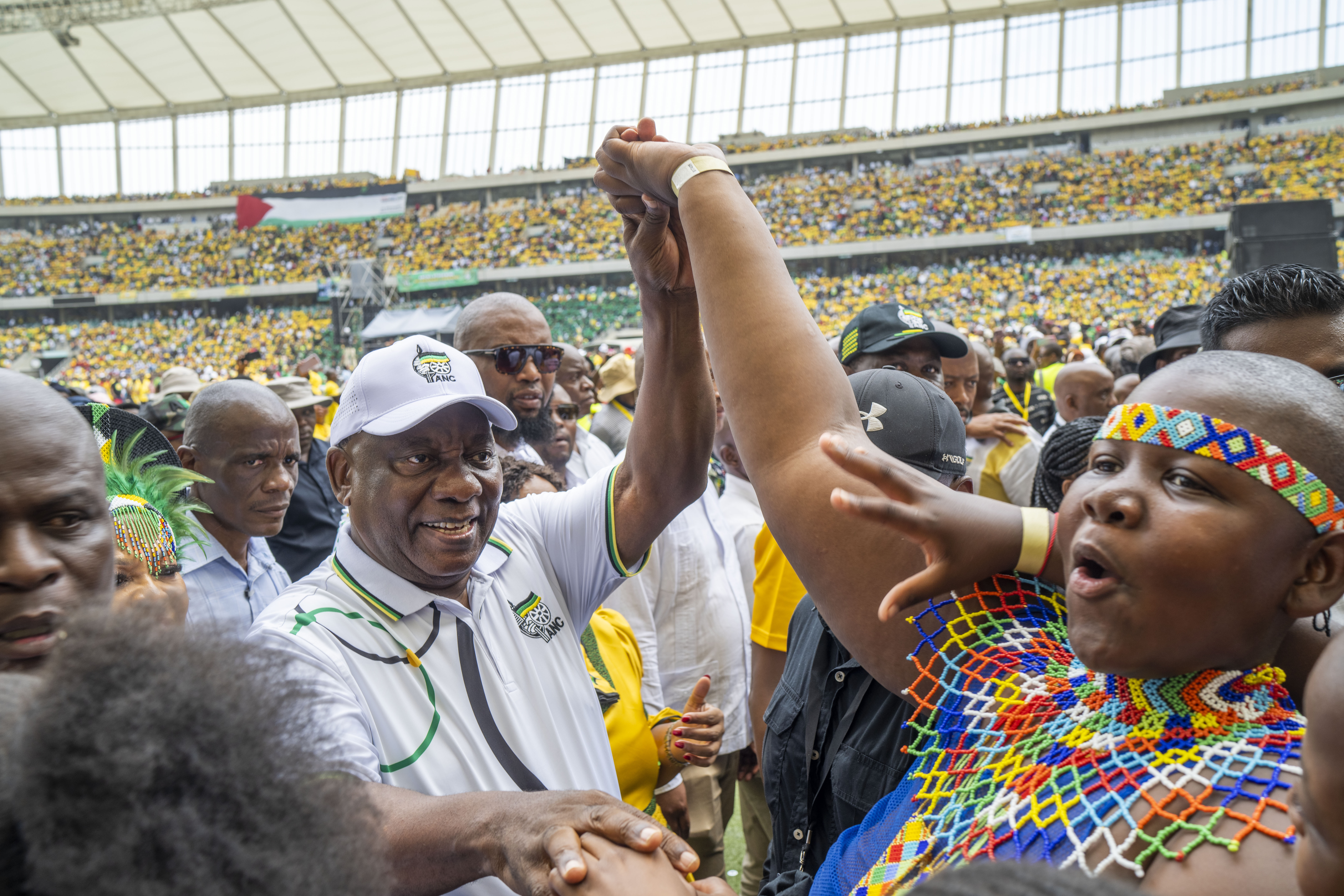As South Africans approach their upcoming national elections, scheduled for May 29—some with reservations—a plethora of critical issues loom large over the country’s political landscape. One that is getting a lot of attention is whether Africa’s most influential nation-state is possibly prepared to embrace coalition governance on a national scale.
According to the South African news site Isolezwe, more commonly known as iol.co,za, “The rise of coalition governments in local municipalities since 2016 has reshaped the traditional political paradigm, challenged the long-standing dominance of the African National Congress (ANC), and offered a nuanced glimpse into shared governance dynamics.”

Many news outlets report that some polls say the governing ANC could receive less than 50 percent of the vote for the first time in 30 years.
“Mounting criticism of the party that led the fight against apartheid under the late Nelson Mandela has chipped away at its support, raising the possibility of a coalition government,” reported the BBC.
Once commanding 70 percent of the vote and being all but untouchable in South African politics, the ANC was once admired for leading the anti-apartheid movement and freeing South Africa from the system of apartheid or forced racial segregation.
According to chathamhouse.org, opposition parties will have to scuffle for South Africa’s urban votes, which represent 60 percent of the country’s 62 million population. “Their success will depend on their ability to overcome race and class divisions that have traditionally defined political party support, and mobilize ‘born frees’—young voters born after 1994 who don’t (necessarily) hold loyalty to the ANC.
But success in urban centers may yet fail to dislodge the ruling party,” reported chathamhouse.org.
The ruling party’s past reputation is no longer enough for people facing deep socio-economic problems, as reflected in recent elections. “The ANC won 57 percent of the vote in the last general election in 2019, its worst performance nationally.
The biggest wake-up call came in local elections in 2021 when it went below 50 percent. That meant more South Africans voted for other parties than the ANC in a momentous shift,” reported the AP news service.
Then there is the corruption trial of the 81-year-old former president Jacob Zuma. He was set free after being convicted to serve a 15-month sentence for contempt of court for refusing to testify at an inquiry into corruption.
Adding insult to injury, the ANC lost a court bid seeking to deregister the newly formed uMkhonto weSizwe (MK) party, backed by the former president. Zuma’s new party is named after the ANC’s disbanded military wing.
According to Turkiye news service Anadolu Ajansi (aa.com.tr), “However, collectively with other newly formed parties and the usual opposition, the DA (Democratic Alliance), EFF (Economic Freedom Fighters) and others, the ANC’s dominance could end in the 2024 elections,” said Kealeboga Maphunye, a professor of politics at the University of South Africa, during a recent interview.
Maphunye added the ANC’s standing has taken a hit due to the “worrisome backsliding in South Africa in the past 10 to 15 years.” He pointed to issues such as “nascent corruption and mismanagement.”
Add to that, South Africa has one of the highest unemployment rates in the world, standing at 32.1 percent, according to official government figures released in early March.
One poll was sponsored by the Johannesburg-based Brenthurst Foundation, established by the wealthy diamond mogul and owner of De Beers, the Oppenheimer family. It was unveiled, as the political parties declared their funding to the Independent Electoral Commission. It was revealed the Oppenheimer’s were listed as major donors to Democratic Alliance, reported africanews.com.
The Economic Freedom Fighters spokesperson posted a rejection of the survey’s findings on X, formerly Twitter, stating: “The Oppenheimer’s have been giving millions to the DA, Action SA and Rise Mzansi, and by no surprise, their poll projects the growth of the parties they fund.”
Add to that, with the heavy investment in Israel, reclusive online gambling billionaire mogul Martin Moshal is also playing an increasingly influential role in donating millions to opposition parties like the DA, the ANC has its hands full.
Follow @JehronMuhammad on X, formerly Twitter













